Cabinetlandia: Update No. 2
Building the Cabinet National Library
Matthew Passmore
For its Spring 2002 “Property” issue, Cabinet beat hearty competition on eBay to buy, sight unseen, a 1/2 acre piece of scrubland outside Deming, New Mexico. The resulting Cabinetlandia was divided into sections with differing functions, some generous, some wholly self-serving: Readerland, Nepotismia, Funderlandia, Editorlandia, Internlandia, and so on. Three sections were left for future projects to be done on the land. In July 2003, we received a letter from someone in San Francisco purporting to be a devoted reader of Cabinet, one Matthew Passmore. His outlandish and extravagant scheme for building the Cabinet National Library on one of the project spaces seemed to be the stuff of a Werner Herzog short. We published his letter and diagrams in issue 12. To our astonishment, this past summer he made good on his perhaps hasty promise to go out to New Mexico with some friends and build the library. Here is his report.
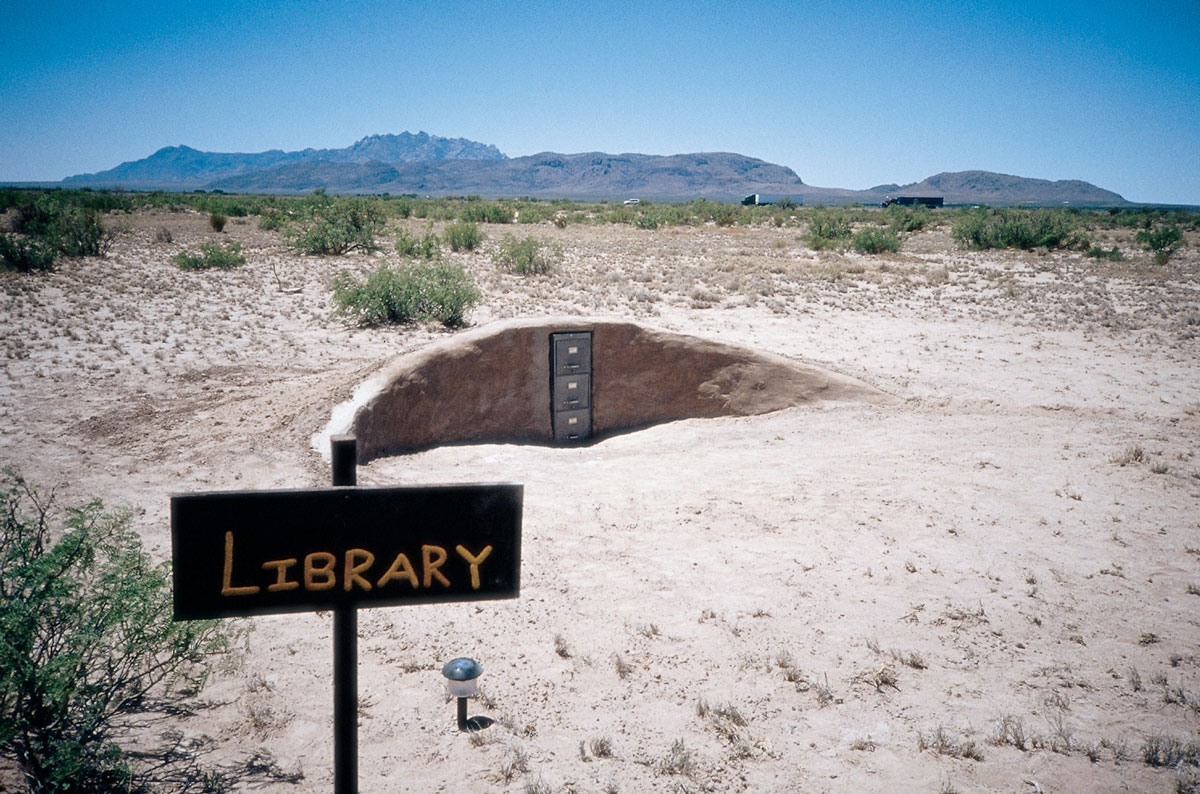
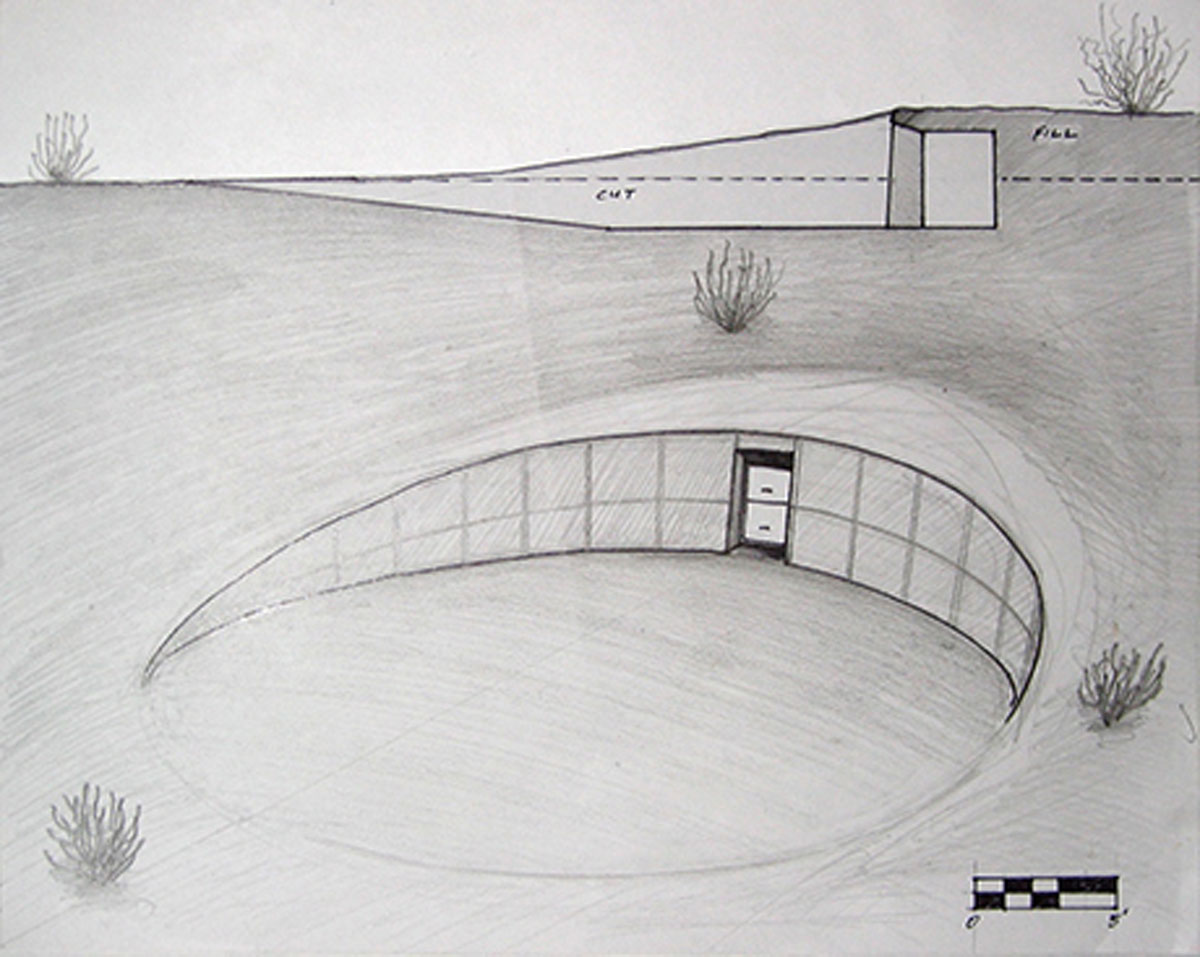
The drawings were finished, the supplies secured. We had successfully convinced the editors of Cabinet that we were neither insane nor insincere, and did actually have a plan to build the Cabinet National Library in Cabinetlandia, a desolate tract on the outskirts of Deming, New Mexico.
I had borrowed a minivan and filled it with all the tools one anticipates needing to build a library out of a file cabinet in the middle of an empty desert: assorted implements for digging, hundreds of pounds of cement, many feet of chicken- and barbed-wire, one hundred sand/earthbags, a shade structure and, of course, a sturdy, three-drawer file cabinet manufactured under the encouraging brand name “The Fortress.” It was Tuesday, June 30th 2004, and I was off to Cabinetlandia.
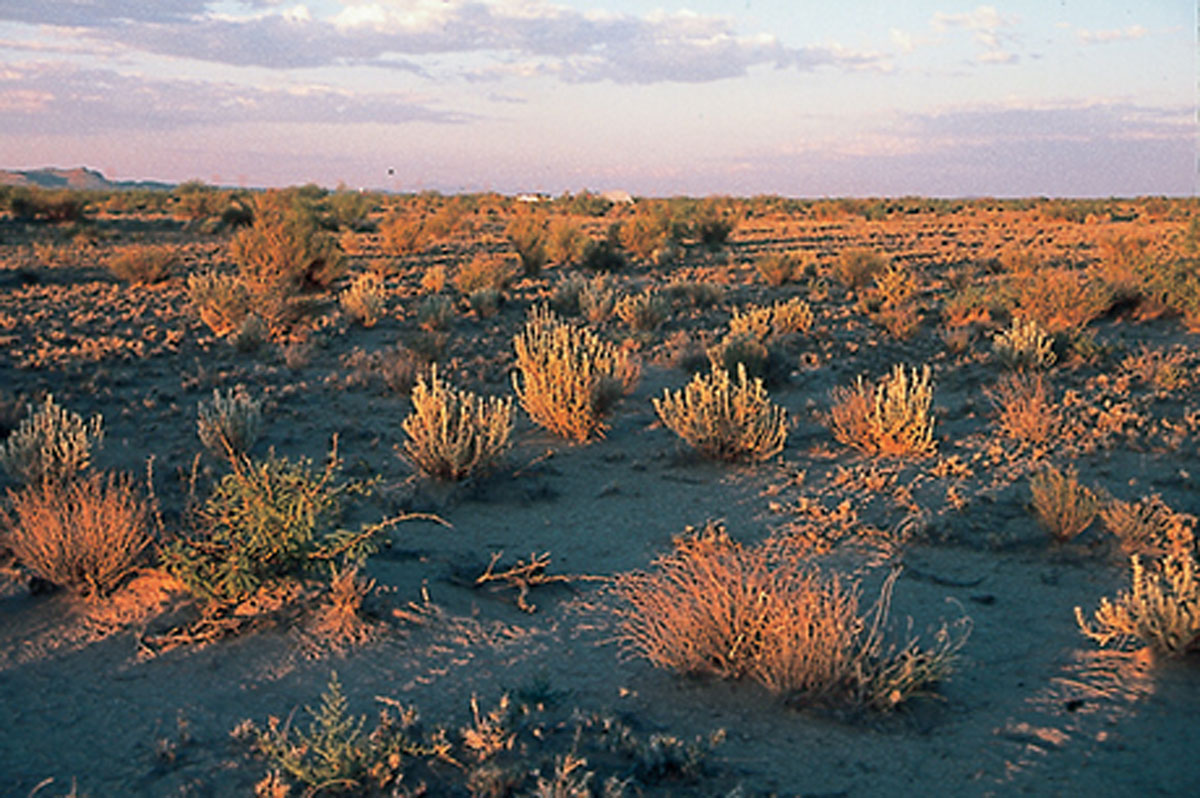
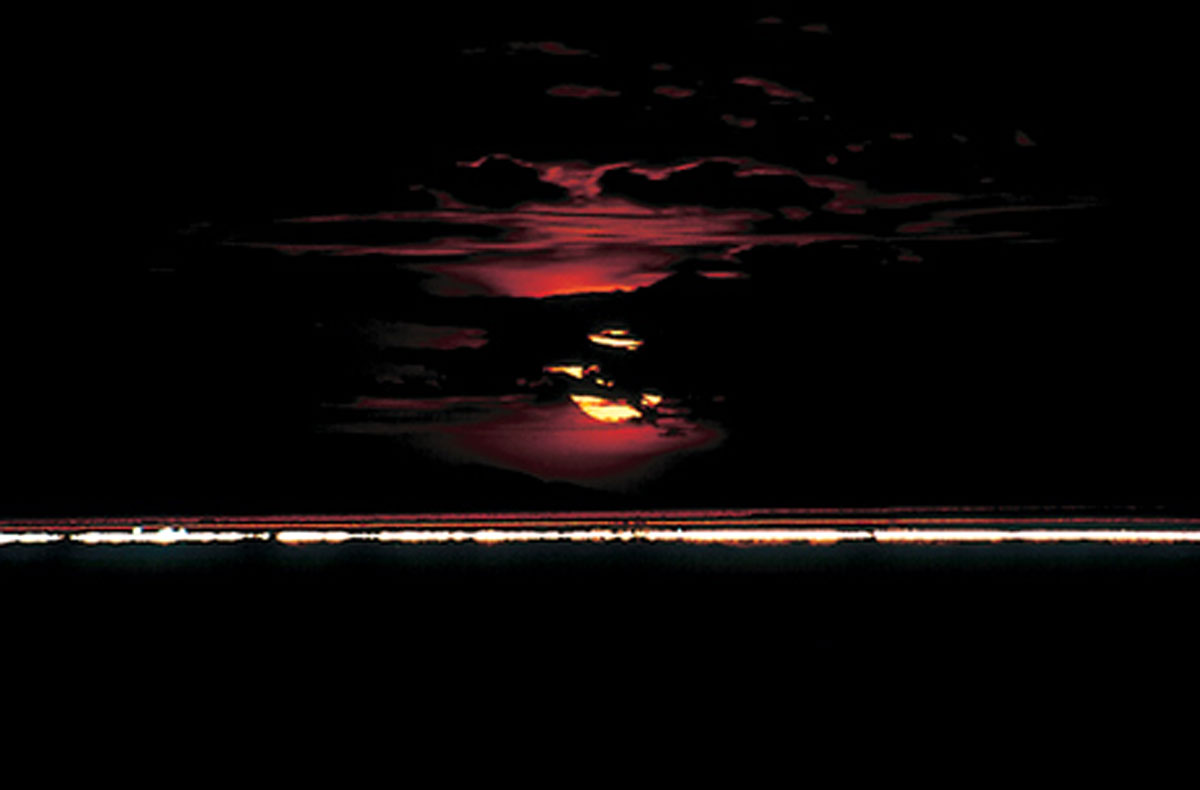
After a bleary 1200-mile drive from San Francisco to Deming, I rendezvoused with my fellow builders and librarians: John Bela, Judson Holt, and Jed Olson. We are, collectively, by trade and training, a rather gentile, white-collar lot: artists, professionals, a doctor, a graduate student—in other words, exactly the kind of crew that has so thoroughly fetishized the customs of the working class that traveling to a barren desert in the middle of nowhere to dig for long hours in the blazing July sun actually qualifies as “vacation.”
So on the afternoon of Friday, July 1st, with the crew assembled, the shade structure built, and our library site situated what we hoped was a safe distance from Luke Murphy’s buried uranium project, we began to dig. And much to our pleasant surprise, at the end of that day, the cabinet was set securely in place, and the earthbag wall was nearly complete. Before heading back to our motel for the evening, we took a few moments to enjoy a magnificent burnt-umber full moonrise over the desert.
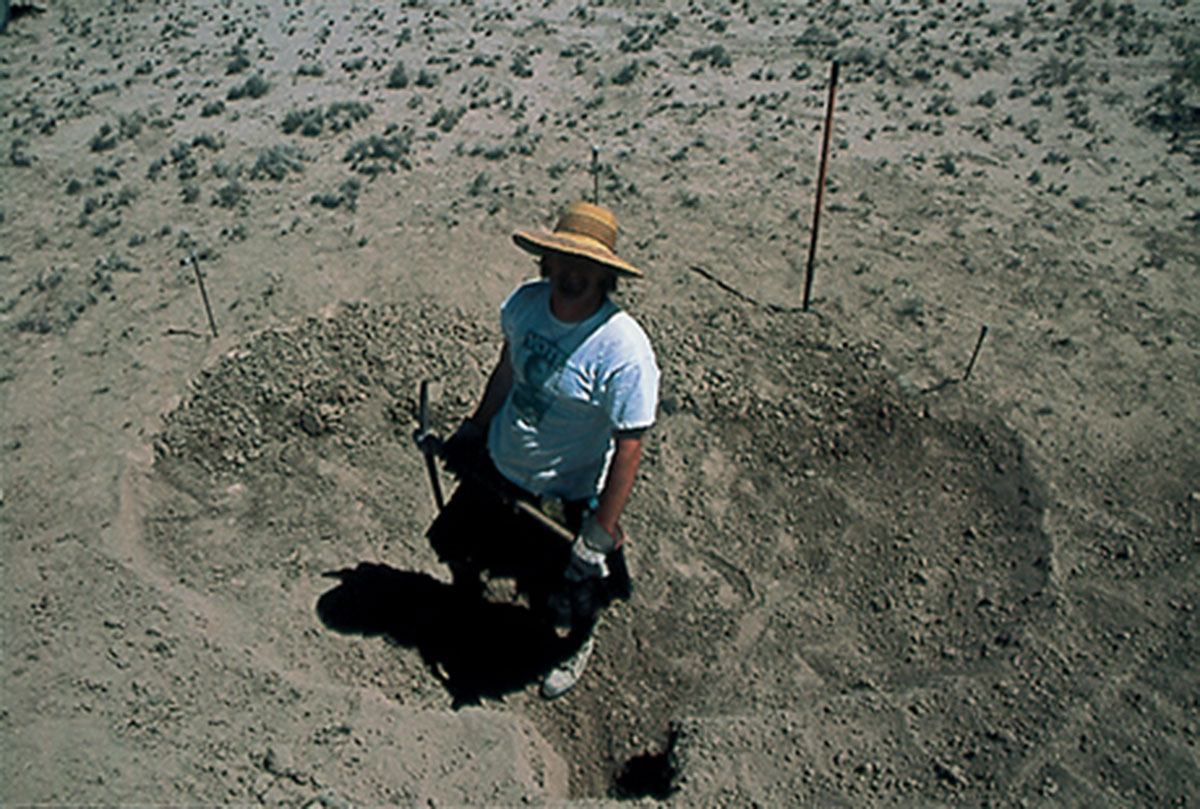
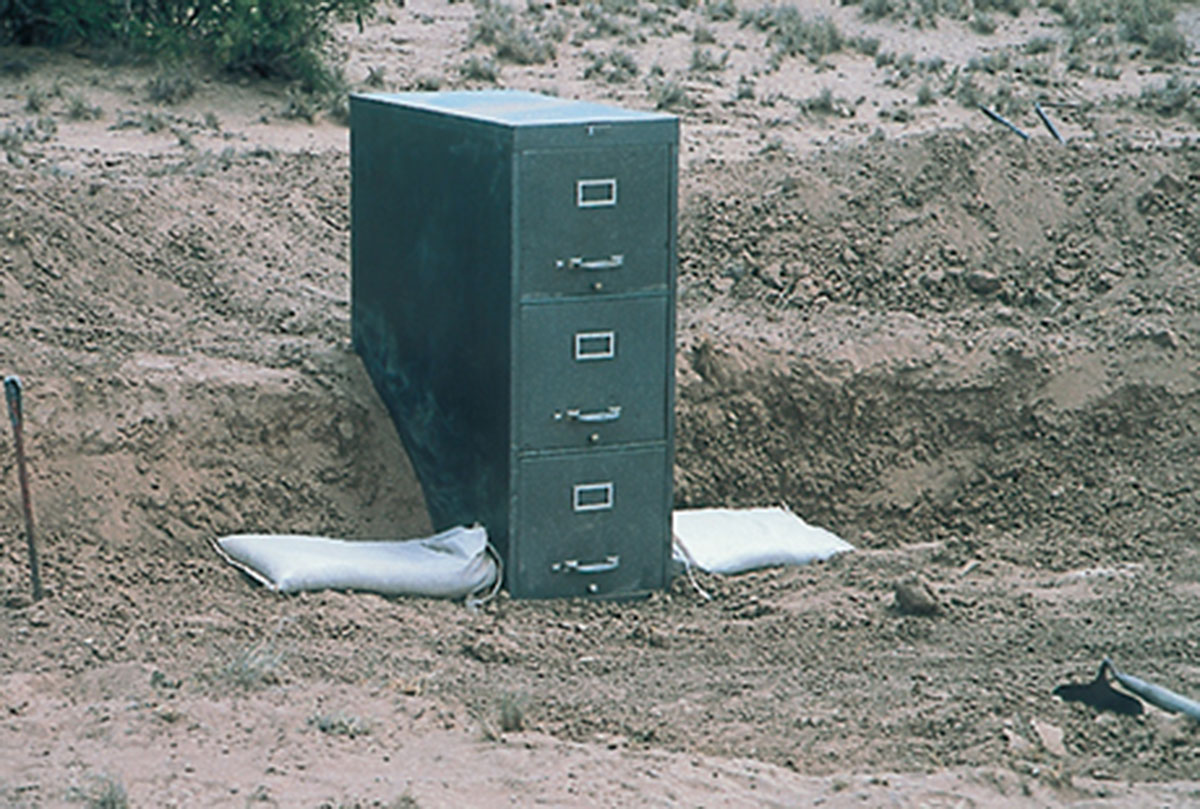
The next day around midday, we completed the earthbag wall and began to cover it with our proprietary mix of cement and local soil. By early evening, the cement was dry and we had installed the collection of Cabinet magazines and the other essential elements of the library. With dusty pomp and circumstance, we officially opened the Cabinet National Library at sundown on Saturday, July 3rd, 2004. The evening achieved its ceremonious pinnacle with our homemade fireworks celebration (which, given the impressive array of explosives available in New Mexico around the Fourth of July, and seemingly relaxed regulations regarding their distribution, was a spectacularly satisfying display of bombs bursting in air).
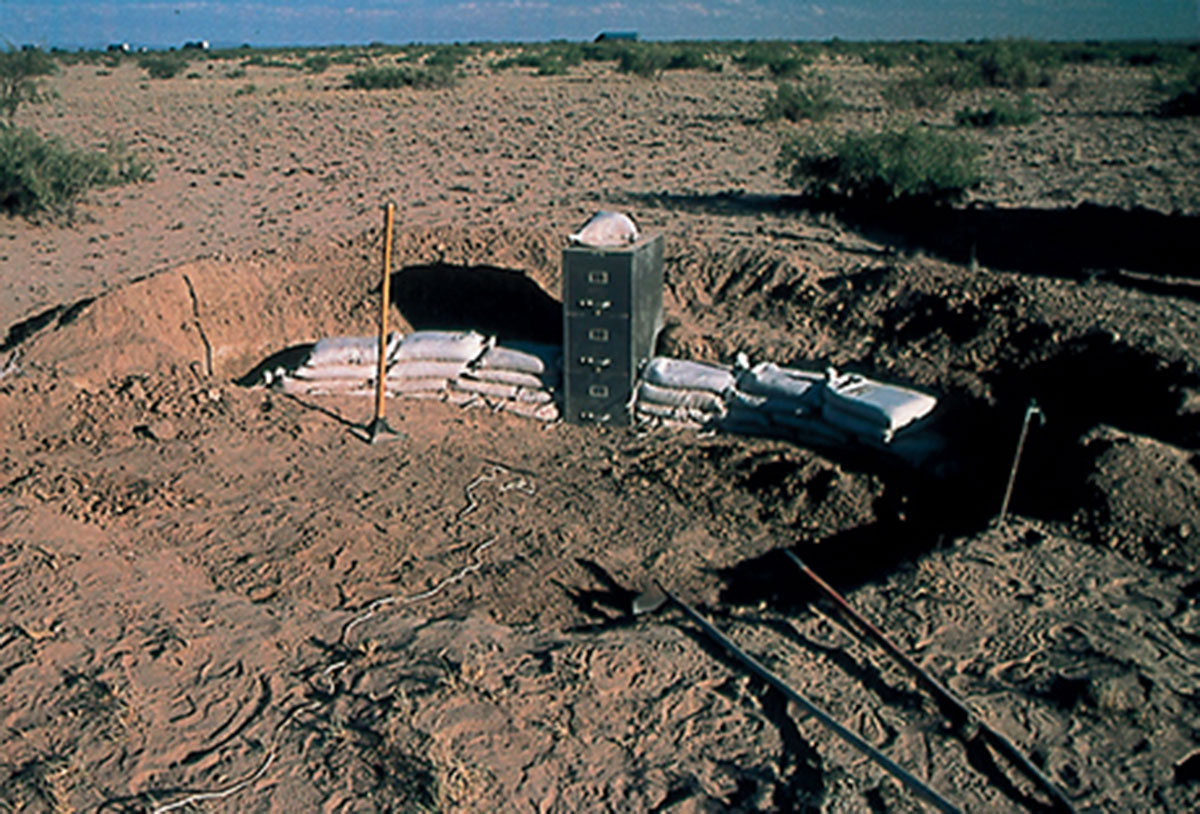
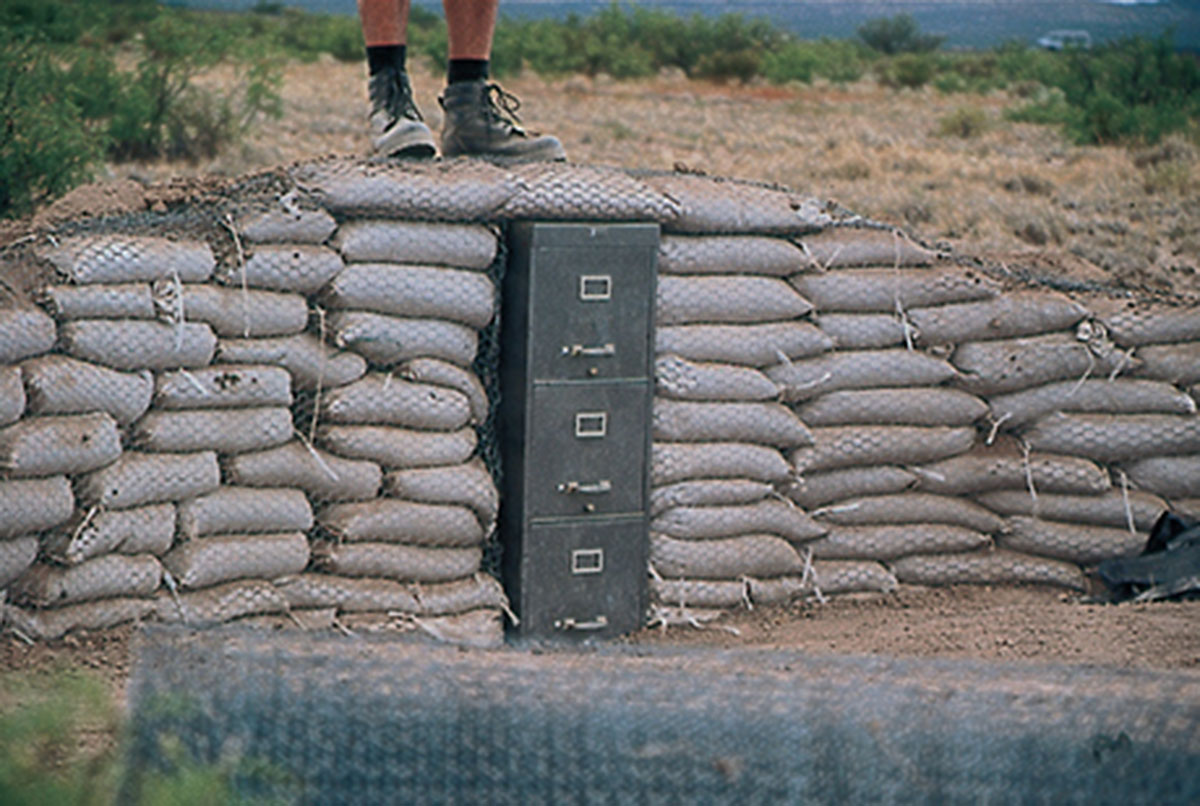
For those readers would benefit from an orientation to the layout and contents of the library, here is what you will find there: The top cabinet drawer contains the library card catalog, a guest book and other “guest services” (a plush pillow to sit on while you read and an umbrella to shade you). The middle drawer contains the collection of the first thirteen issues of Cabinet, with each magazine individually-wrapped in a plastic cover for protection from the elements. The bottom drawer is the “snack bar” which, at the time of our departure, contained a bottle of water, a pair of sturdy workboots (men’s size 10) and two cans of steadily-warming beer.
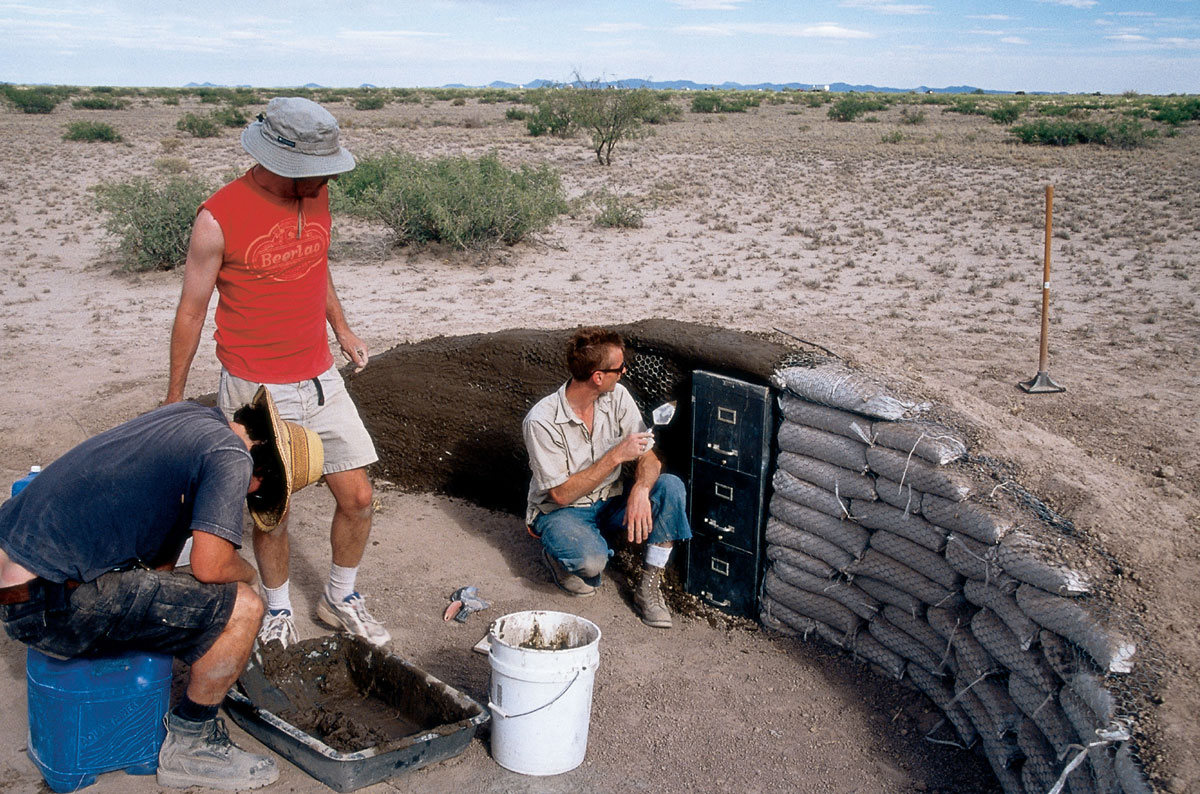
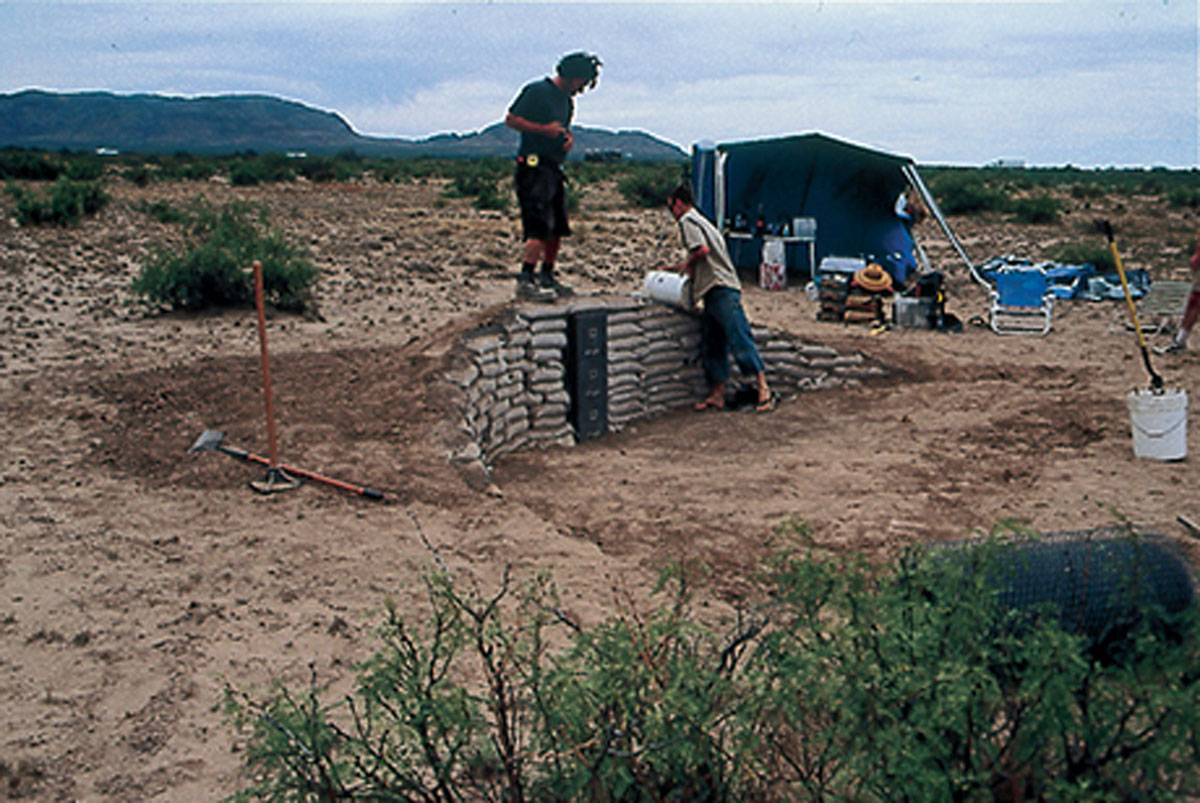
The full landscaped area of the Cabinet National Library takes the form of a circle with a radius of twelve feet—viewed from the south, the cabinet is situated at the top, or “12 o’clock” position on the circle. At each of the positions representing three, six and nine o’clock, we have set a solar-powered lantern into the earth to help guide you around the library grounds should you find yourself there after sundown. Each lantern is also outfitted with a light sensor that automatically shuts the light off during daylight hours (while the batteries recharge) and turns the light on at night.
The arced wall is approximately 15 feet long on either side of the cabinet. As viewed from the backside, the library appears as a gently-sloping mound rising from the desert floor, and is almost entirely camouflaged from view.
The design of the Cabinet National Library was inspired in various ways by the architectural visions of the Austrian artist Friedensreich Hundertwasser, the writings of cultural geographer John Brinckerhoff Jackson, and many large-scale desert art installations we have witnessed over the years in Black Rock City, Nevada.
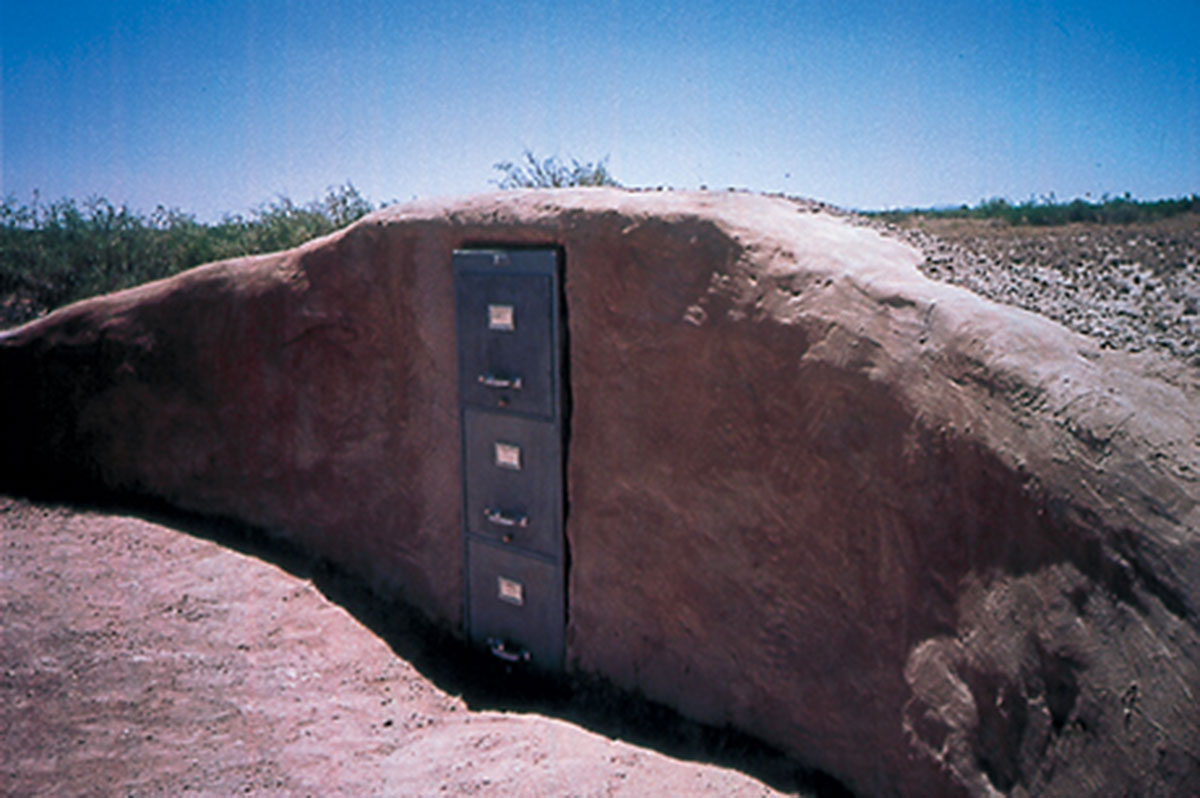
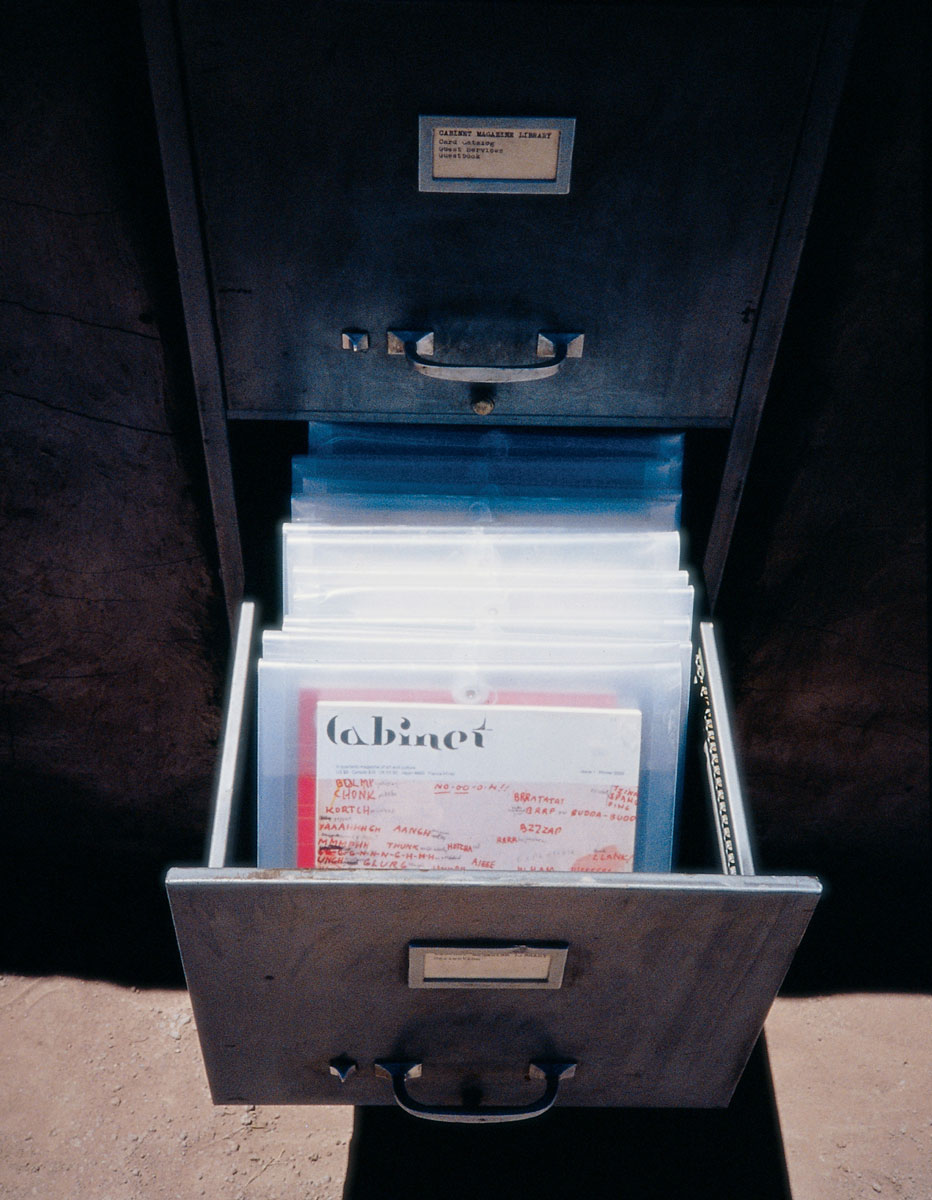
If you decide to visit, may you enjoy your stay at the Cabinet National Library (and don’t forget to sign the guest book!). Please contact the editors of Cabinet prior to your departure regarding any recent issues of the magazine that may need to be added to the collection. If you go, we can recommend a truly delicious home-style Mexican restaurant in Deming. However, if you find yourself peckish while on-site, don’t hesitate to patronize the library snack bar, and help yourself to a sip of water, or a can of hot beer.
Matthew Passmore is an artist and filmmaker who lives in San Francisco. He is currently producing a number of film projects, including a feature film entitled Half of Nothing and a documentary about conservation biologists. He is also the Cabinet National Librarian.